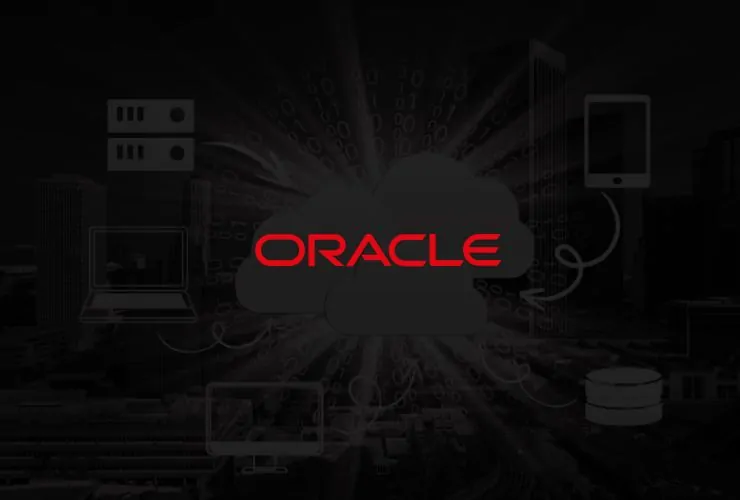Protecting sensitive data in Oracle environments is critical for businesses managing enterprise applications, financial data, or customer information. With increasing cyber threats, insider risks, and stricter regulatory requirements, organizations must adopt comprehensive security strategies. Oracle offers a suite of security tools—including Vaults, Role-Based Access Control (RBAC), and encryption—to safeguard databases against unauthorized access, data breaches, and insider threats.
Implementing these features ensures compliance with regulatory standards such as GDPR, HIPAA, and PCI DSS while maintaining operational integrity, data privacy, and business continuity. In today’s data-driven landscape, securing your Oracle environment is not just a technical requirement—it is a strategic business imperative.
1. Oracle Vault: Strengthening Access Control
Oracle Vault improves access control strategies with automated enforcement of duties and policies across users of the database. Key advantages include:
- Separation of Duties: Prevents a single user from performing sensitive operations at the same time. Separation of duties reduces the risk of internal fraud and/or accidental manipulation of data.
- Real-Time Access Policies: Allow organizations to define access controls for users based on their age, where the user is located, time of access, or operational conditions.
- Audit and Compliance: Produces detailed logs of all privileged operations, with a view to make it easier to report to regulators and conduct internal audits.
Example Scenario: An organization in the financial services sector used Oracle Vault to separate the functions of approval and transaction execution for DBAs to mitigate the chance of loss through either fraud or accident. Doing so e.g. supports compliance to regulations and internal processes to mitigate app use risks by insiders.
Oracle Vaults enables organizations to enforce access restrictions to comply with corporate governance and reduce the risks of misuse of administrative access by privileged users.
2. Role-Based Access Control (RBAC)
RBAC is a foundational strategy in an organization’s ability to effectively and securely manage user privileges. It allows organizations to enforce the principle of least privilege and reduces the overhead required for administrative activities.
- Granular Permissions: Enable access rights based on roles instead of individuals. This reduces complexity and minimizes errors.
- Simplified Administration: Makes it easy to manage access for large groups of users, naturally assisting organizations in reducing privilege creep over time.
- Align Compliance: Provides an organization with audit ready control structures, compliance with regulations, and traceability of access records.
Example Use Case: In a healthcare organization if a clinician was assigned to a patient, and other clinicians needed access to a patients records, their access could be limited to view those records only when assigned to that patient. Other staff who do not have direct clinical responsibilities would not have access to sensitive information.
RBAC can potentially limit unauthorized access and provide one aspect of an organization’s overall database governance strategy.
3. Encryption: Protecting Data at Rest and in Motion
Encryption is a critical layer of protection safeguarding sensitive information stored within a database or transmitted; the following are examples:
- Transparent Data Encryption (TDE): Automatically encrypts data at rest, including backups, with no changes made to applications.
- Network Encryption: Ensures sensitive data is protected moving across the network (SSL/TLS). This prevents anyone from intercepting information while it is being replicated or connecting as clients.
Key Management: Use Oracle Wallet or hardware security modules (HSM) to securely store, rotate, and manage encryption keys.
4. Best Practices for Securing Your Oracle Environment
To maintain a strong security posture, organizations should implement the following practices:
- Utilize vaults for sensitive operations: Separate duties of critical workflows to limit the risk.
- Use role-based access control (RBAC): Allow access based on an individual’s role and periodically confirm access permissions.
- Encrypt all sensitive data: Utilize Transparent Data Encryption (TDE) for at-rest data and SSL/TLS when data is in transit.
- Monitor and audit: Leverage automated tools to detect anomalies and to audit data for regulatory compliance.
- Update security policies regularly: Continuously update access controls and encryption methods to respond to evolving threats.
- Educate employees: Teach employees about security best practices and their responsibility to protect sensitive data.
- Conduct security assessments regularly: Conduct penetration tests, vulnerability scans, and compliance audits to identify gaps.
5. Why Empirical Edge Can Help
Empirical Edge provides enterprise Oracle security services to protect databases, provide compliance, and optimize database performance. Some of these enterprise level services include:
- Oracle Vault Installation/Management Policy
- Role-Based Access Control (RBAC) Configuration and Privileged auditing
- Transparent Data Encryption (TDE) Installation and Key Management
- Real-time security monitoring and anomaly detection
- Compliance reporting with GDPR, HIPAA, PCI DSS
- Ongoing support, update, and incident response.
By partnering with Empirical Edge, your organization gets the eye of an expert to secure your Oracle environment, implement policies and controls for data privacy, compliance, and security issues.
6. Prospective Developments in Oracle Security
In summary, future security opportunities for enterprises will include:
- AI + Machine Learning Threat Detection: machine learning capabilities can analyze for anomalies and adversarial circumstances to identify breaches before they fully occur.
- Cloud-Site Security Abstraction Services: vaults, role-based access controls (RBAC), RBAC, and encryption to hybrid or multi-cloud properties or accounts utilizing Oracle.
- Automated Compliance: compliance monitoring and the latest report generation mechanism to provide real-time, individual records of evidence to quickly map audits and regulate future objectives.
- Association with DevSecOps: Security controls in continuous integration/continuous delivery (CI/CD) pipelines ensure continually compliance during application development.
Conclusion
Securing an Oracle environment is now imperative. Vaults, RBAC, and encryption will be your security triple-prong framework to protect sensitive organization data, fulfill economic regulation compliance, and maintain operational continuity. Organizations can leverage best practices with a service specialist like Empirical Edge to functionally build a future-ready, continuous, resilient, and audit-friendly Oracle database security framework. It may be the best route to minimize risks and enable operational execution with registered security and assurance.
Protect Your Oracle Environment with Confidence
Safeguard your critical data with advanced security strategies including vaults, role-based access, and encryption. Partner with Empirical Edge to implement robust protections, maintain compliance, and build a resilient database infrastructure ready for future challenges.
Frequently Asked Questions
Securing an Oracle environment protects sensitive data, ensures regulatory compliance, and maintains operational continuity in the face of growing cyber threats.
Oracle Vault strengthens access control by enforcing separation of duties, applying real-time access policies, and generating detailed audit logs for privileged operations.
RBAC assigns permissions based on roles instead of individuals, reducing complexity, minimizing errors, and helping enforce the principle of least privilege.
Encryption safeguards data at rest and in transit using technologies like Transparent Data Encryption (TDE) and network encryption, preventing unauthorized access or interception.
Key practices include using vaults for sensitive operations, implementing RBAC, encrypting data, monitoring activity, updating policies regularly, educating employees, and conducting security assessments.
Yes, enterprise security services can assist with vault implementation, RBAC configuration, encryption setup, compliance reporting, and ongoing monitoring to reduce risks.










